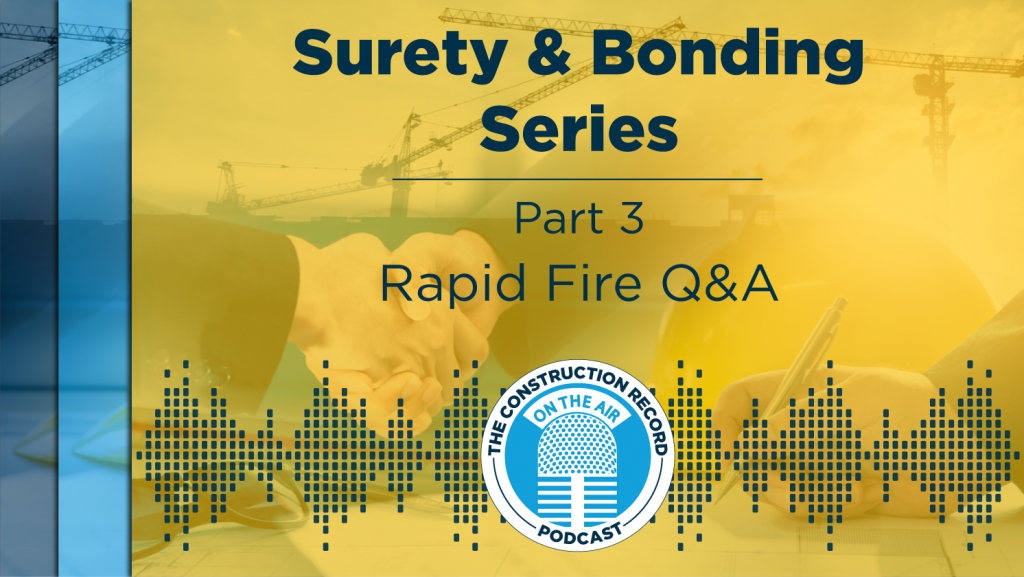For its final episode in a three-part Surety and Bonding series the Construction Record podcast team held a rapid-fire question session with Smartbuild Construction Solutions founder Zulqernain Malik, FCA Insurance Brokers vice-president of surety Andrew Cartwright and Jeff Scorgie, an associate with the Construction Practice Group at WeirFoulds.
On the value and responsiveness of surety bonds, Cartwright noted research that analyzed tens of thousands of construction projects found that non-bonded contractors were 10 times more likely to go insolvent than bonded contractors. There was $3.5 million of additional GDP for every additional $1 million of premium and bonds created $1.5 million in wage protection for every $1 million of premium.
“It showed that bonds really do have a value,” he said. “The challenge I think is that we need to continue to educate users of bonds about how they work. They are not demand instruments; they are default instruments.”
Malik explained from a contractor’s perspective it is a “necessary evil” as not having a surety or bonded program eliminates you from a large segment of project work.
He added more work needs to be done to communicate what a contractor’s rights are within a bond, how scheduling is involved and how various parties can impact schedules.
The Construction Record – Episode 122: Surety and Bonding Part 3 Rapid Fire Edition
Cartwright advised that brokers who offer only bonds could soon find themselves lagging behind.
“If you are a broker who is really just issuing paper, you are not providing any value add,” he said. “When contractors get into a situation you need to be able to be an adviser and an advocate for them and give them a sense of how to navigate that situation.”
Malik gave his thoughts on delay claims, which he says are becoming a byproduct of work.
“They really should be called a ‘comedy of errors’ because why did it even happen and it really starts at the beginning,” he said.
He explained often little investigation is done on who the client is and after the project has been issued for tender, the tendering process will often indicate how the project will go.
“Experience has told me over 20 years that if you have a job with multiple addendas, you are going to have a claim,” he added. “Contractors tend to think that changes are opportunities, but more and more people get tired with their wallets. Changes are not opportunities, they become battles.”
He advised contractors to meticulously document their jobs in an organized way and to know their rights.
Scorgie agreed about keeping solid records, saying proper records are critical to proving a delay occurred and how it impacted work.
“We see it a lot in court cases or arbitration where there probably was an actual delay, but you just didn’t have the proper records to be able to substantiate it,” he said.
He also advised contractors to pay close attention to notice requirements which are a common reason why delay claims are compromised or even thrown out.
“Opening up your contract and seeing what the notice requirements are can save you a world of hurt down the road,” he said.
Check out the podcast here (https://canada.constructconnect.com/dcn/podcasts/the-construction-record-episode-122-surety-and-bonding-part-3-rapid-fire-edition) for more questions with the panel.
Follow the author on Twitter @RussellReports.





Recent Comments
comments for this post are closed